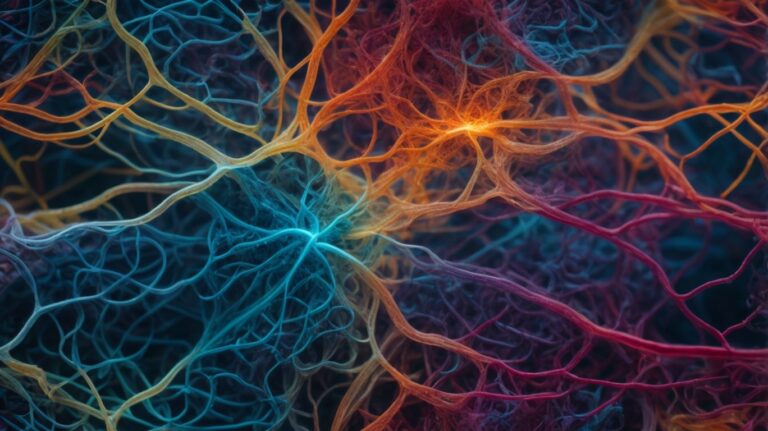Have you ever wondered why you feel guilty when you do something wrong or strive for perfection in everything you do? The answer may lie in the concept of the superego in psychology.
In this article, we will delve into the origins and components of the superego, its development, functions, and the effects of an overactive superego. We will explore ways to manage an overactive superego, offering valuable insights into this fascinating aspect of the human psyche.
Contents
- 1 Key Takeaways:
- 2 What Is Superego?
- 3 Where Did the Concept of Superego Originate From?
- 4 What Are the Components of the Superego?
- 5 How Does the Superego Develop?
- 6 What Are the Functions of the Superego?
- 7 What Are the Effects of an Overactive Superego?
- 8 How Can Someone Manage an Overactive Superego?
- 9 Frequently Asked Questions
Key Takeaways:
What Is Superego?
The superego is a central concept in Freud’s psychoanalytic theory of personality, representing the internalization of societal and parental values and standards within the individual’s psyche.
The superego acts as the moral compass, influencing and regulating an individual’s behavior and decisions. According to Freud, it emerges during the phallic stage of development, shaped by the Oedipus complex and Electra complex. It operates in the unconscious mind and can lead to feelings of guilt and self-criticism when an individual’s actions go against its established standards. Freudian psychoanalysis emphasizes the importance of resolving conflicts between the superego, id, and ego for achieving psychological well-being.
Where Did the Concept of Superego Originate From?
The concept of the superego originated from the pioneering work of Sigmund Freud, who developed it as a key element in his psychoanalytic theory to explain the internal conflicts and moral development of individuals.
Freud’s insight into the human psyche led to the understanding of how the superego, shaped by societal and parental influences, becomes a critical part of an individual’s personality.
His exploration of the subconscious mind unveiled the intricate dynamics of conflicting desires and societal expectations, highlighting the formation of the superego as a result of internal struggles.
The application of psychoanalysis in understanding the formation of the superego offers a comprehensive framework for looking into the historical and sociocultural contexts that contribute to the development of this psychological element.
By examining the intricate interplay of unconscious impulses, cultural norms, and personal experiences, psychoanalysis provides valuable insights into the complexities of superego formation.
What Are the Components of the Superego?
The superego consists of three primary components – the ego ideal, the conscience, and the self-observing agency – which collectively shape an individual’s moral compass and govern their behavior based on internalized moral values and societal norms.
The ego ideal serves as an internalized image of the idealized self, encompassing the traits and behaviors that an individual aspires to attain. It operates as a standard for personal excellence and helps guide one’s ambitions and aspirations.
The conscience represents the internalization of societal and parental moral standards, acting as the critical voice that evaluates and punishes behavior perceived as contrary to these standards.
The self-observing agency facilitates self-reflection and monitoring, enabling individuals to regulate their behavior in alignment with their internalized standards and societal norms.
The Ego Ideal
The ego ideal, as conceptualized by Freud, is a fundamental aspect of the superego that operates based on the reality principle, striving to embody the individual’s idealized self and aspirations deeply rooted in the subconscious.
The ego ideal is a construct that represents the internalization of societal and parental standards, forming a moral compass for the individual. The alignment of the ego ideal with the superego leads to the internalization of values, beliefs, and standards that guide one’s behavior and decision-making.
The ego ideal is closely linked to the concept of the subconscious, as it encompasses the individual’s vision of their perfect self and the desired characteristics that they aspire to embody. These ideals often originate from early childhood experiences, cultural influences, and societal expectations, shaping the individual’s perception of their identity and self-worth.
The ego ideal has a profound influence on the reality principle, shaping the individual’s pursuit of success, achievement, and personal development. It drives the individual towards realizing their aspirations and fulfilling their potential, often serving as a motivating force behind their actions and choices.
The Conscience
The conscience, a vital element of the superego, encompasses an individual’s internalized moral standards and operates at the conscious level, guiding ethical decision-making and moral judgments.
The conscience is a guiding force in an individual’s ethical behavior, integrating moral values and societal norms. It is deeply interconnected with the moral compass, influencing choices and actions based on the internalized understanding of right and wrong.
Through the superego, the conscience also regulates self-critical thoughts and feelings of guilt, reinforcing moral principles and shaping an individual’s sense of responsibility towards others. It plays a significant role in moral development, maturing and evolving through experiences and social interactions, and adapting to changing ethical landscapes.
Furthermore, the conscience’s influence extends beyond individual conduct, contributing to the wider social fabric by promoting collective ethical standards and societal cohesion.
The Self-Observing Agency
The self-observing agency, as defined by Freud, represents the critical self-assessment and internal monitoring function within the superego, employing defense mechanisms to mitigate internal conflicts and maintain moral equilibrium.
The self-observing agency operates as a crucial component of the superego, facilitating the individual’s ability to evaluate their thoughts, actions, and behaviors against internalized moral standards and societal norms.
This self-assessment function, deeply rooted in the superego, plays a pivotal role in the regulation of behavior and the sense of personal accountability.
In Freud’s psychoanalytic framework, the self-observing agency is closely linked to the development of an individual’s conscience and sense of morality. It operates as a mechanism for internal checks and balances, governing the individual’s adherence to societal expectations and ethical values.
The self-observing agency leverages defense mechanisms to navigate and manage internal conflicts effectively. By utilizing defense mechanisms such as rationalization, repression, and sublimation, the agency helps to shield the individual from experiencing overwhelming guilt or anxiety, thus safeguarding their psychological well-being.
How Does the Superego Develop?
The development of the superego is influenced by the interactions with parents and caregivers, societal norms, and the individual’s psychosexual experiences, shaping their internalization of moral values and ethical standards.
Parents and caregivers play a pivotal role in the formation of the superego as they serve as the earliest authority figures for the child. They provide guidance, set boundaries, and impart values through moral instruction and discipline.
Societal norms and cultural expectations also contribute to the development of the superego by influencing the individual’s adaptation to societal standards of behavior and ethical conduct.
The psychosexual experiences, as theorized by Freud, also play a significant role in shaping the superego. These stages of development, from the oral to the genital stage, influence the individual’s understanding of pleasure, gratification, and the formation of conscience and self-control.
The Role of Parents and Caregivers
Parents and caregivers play a pivotal role in the development of the superego, as emphasized in Freudian theory, through the transmission of moral values, discipline, and the establishment of behavioral norms.
Children internalize moral standards from their parents and caregivers, forming the basis of their superego. The manner in which parents model ethical behavior significantly influences the development of their children’s sense of right and wrong.
The disciplinary measures implemented by caregivers shape the child’s understanding of acceptable and unacceptable behavior, contributing to the formation of their superego. The establishment of behavioral norms within the family environment provides a framework for the child’s moral development, influencing the construction of their superego.
The Influence of Society and Culture
Society and culture exert a significant influence on the development of the superego, shaping the individual’s psychosocial understanding, moral framework, and integration of societal norms and values.
From a young age, individuals are exposed to the behavioral expectations and moral codes prevalent in their culture, which gradually shape the development of their superego. Socialization processes, such as family dynamics, educational systems, religious institutions, and media representations, play a pivotal role in instilling cultural values and norms within the individual’s moral compass.
The diverse cultural perspectives and societal expectations significantly impact the formation of the superego, influencing an individual’s internalization of right and wrong. For example, in collectivist societies, emphasis is placed on group harmony and interdependence, which may lead to the integration of collective welfare into the moral framework, whereas individualistic cultures may prioritize personal achievement and autonomy.
The superego’s development is also intertwined with the societal attitudes and responses to moral and ethical dilemmas, often reflecting the prevailing cultural ethos. This interplay between the individual and the broader societal context underscores the complex and dynamic nature of superego formation, elucidating its profound psychosocial implications.
What Are the Functions of the Superego?
The superego serves several critical functions, including the internalization and enforcement of moral standards, the induction of feelings of guilt and shame, and the utilization of defense mechanisms to manage internal conflicts.
One of the primary roles of the superego is to serve as an internal moral compass, integrating societal and cultural norms into an individual’s psyche. It regulates behavior by setting high standards and ideals, striving for moral perfection.
Furthermore, the superego plays a crucial part in generating feelings of guilt and shame when an individual’s actions or thoughts deviate from these internalized moral standards. This emotional response acts as a deterrent, influencing the individual to conform to societal norms.
The superego employs defense mechanisms, such as repression, displacement, and rationalization, to minimize the anxiety that arises from conflicting internal desires and societal expectations.
Moral Standards and Values
The superego is instrumental in the internalization and reinforcement of moral standards and values, exerting a pervasive influence on the individual’s subconscious understanding of ethical conduct and integrity.
The superego acts as the moral compass, drawing from societal and parental influences to shape an individual’s sense of right and wrong. It operates beyond the conscious realm, constantly molding behavior and decision-making processes.
As individuals mature, the superego guides the internalization of ethical conduct through the adoption of societal norms and familial values. This integration manifests in the individual’s thoughts, actions, and interactions, ultimately reinforcing moral integrity by instilling a deep-rooted understanding of ethical behavior.
Guilt and Shame
The superego induces feelings of guilt and shame in response to perceived moral transgressions, contributing to psychological distress and the internal regulation of behavior and decision-making.
These emotions, deeply rooted in one’s sense of morality and ethics, wield significant influence over an individual’s emotional well-being and self-perception.
Guilt serves as a powerful motivator for individuals to make amends for their actions, seeking resolution and redemption. On the other hand, shame, often linked to a negative self-view, can lead to pervasive feelings of inadequacy and unworthiness.
The superego’s imposition of guilt and shame can create an internal conflict, as individuals grapple with the tension between societal expectations and their own desires.
The ongoing battle to align one’s behavior with these internalized standards can lead to heightened emotional turmoil and impair a person’s overall mental and emotional equilibrium.
Defense Mechanisms
The superego employs a range of defense mechanisms to manage subconscious conflicts, mitigate maladaptive behavior, and regulate internal tensions, contributing to the individual’s psychological adaptation and equilibrium.
These defense mechanisms, as conceptualized by Freud, represent the superego’s capacity to protect the conscious mind from being overwhelmed by unacceptable thoughts, impulses, and desires. Through mechanisms such as repression, denial, and rationalization, the superego filters and processes conflicting emotions and desires, shielding the individual from experiencing excessive anxiety or distress.
These defense mechanisms play a pivotal role in addressing maladaptive behavior patterns. By employing strategies like displacement and sublimation, the superego helps redirect harmful impulses towards more socially acceptable outlets, thereby fostering adaptive and constructive behaviors.
In essence, the utilization of these defense mechanisms by the superego serves as a crucial mechanism for psychological adaptation, providing individuals with effective tools to navigate the complexities of their inner conflicts while maintaining a sense of emotional stability and equilibrium.
What Are the Effects of an Overactive Superego?
An overactive superego can manifest in various effects, including heightened perfectionism, increased anxiety, and difficulties in making decisions, leading to psychological distress and emotional turmoil.
Individuals with an overactive superego often experience an incessant desire for flawlessness, leading to unrealistic standards and a constant feeling of dissatisfaction. This perpetual pursuit of perfection can result in self-criticism and a fear of failure, which exacerbates anxiety levels and contributes to a persistent sense of unease.
The overbearing presence of the superego can complicate decision-making processes, as the individual is plagued by an overwhelming need to make the ‘right’ choice, often leading to hesitancy, doubt, and indecisiveness. This internal conflict can create significant challenges in everyday life, hindering productivity and causing distress.
Perfectionism and Self-Criticism
An overactive superego can engender heightened perfectionism and self-criticism, contributing to psychological distress and impairing the individual’s self-esteem and well-being.
When the superego becomes overly dominant, the internalized moral compass may hold excessively high standards for behavior and achievements. This can lead to relentless self-criticism and a constant striving for flawlessness, fostering a perfectionistic mindset.
The relentless pursuit of perfection often accompanies an intense fear of failure, creating a cycle of unattainable expectations and self-doubt. Many individuals grappling with the impacts of an overactive superego experience heightened psychological distress, ranging from anxiety and depression to chronic stress.
Pervasive self-criticism stemming from the overactive superego can sabotage the individual’s self-esteem, fostering a pervasive sense of inadequacy and unworthiness. As a result, the individual may struggle with feelings of incompetence and an inability to appreciate their accomplishments. This struggle with self-esteem can permeate various aspects of one’s life, affecting relationships, work performance, and overall well-being.
Anxiety and Obsessive Thoughts
An overactive superego can contribute to heightened anxiety levels and the emergence of obsessive thoughts, leading to psychological distress and impairing the individual’s mental well-being and emotional equilibrium.
The superego, as described by Freud, represents the part of the psyche that internalizes societal and parental standards. This can lead to high levels of self-criticism and perfectionism. When this internalized moral compass becomes overactive, it can result in heightened anxiety as the individual constantly evaluates their behavior against unattainable standards.
This perpetual self-critique can fuel obsessive thoughts, creating a cycle of rumination and worry. Consequently, these obsessive thoughts can significantly contribute to psychological distress and disrupt one’s mental well-being and emotional equilibrium.
Difficulty Making Decisions
An overactive superego can lead to difficulties in making decisions, creating internal conflicts and psychological distress, thereby impeding the individual’s ability to navigate life’s choices and challenges.
When the superego becomes overly dominant, individuals may experience an overwhelming sense of guilt and self-criticism, making it challenging to trust their own judgment.
This inner turmoil can manifest as indecisiveness and self-doubt, hindering the capacity to take decisive actions and make sound choices.
The constant internal conflict caused by the overactive superego can lead to heightened anxiety and emotional distress, impacting overall well-being.
The individual’s adaptive functioning may be compromised as they struggle to balance the demands of their conscience with the necessity of practical decision-making, resulting in a sense of being trapped in a perpetual state of uncertainty.
How Can Someone Manage an Overactive Superego?
Managing an overactive superego involves therapeutic interventions informed by cognitive psychology, aimed at addressing subconscious conflicts, maladaptive behavior, and psychological distress, promoting adaptive coping strategies and emotional well-being.
Therapeutic strategies often center around cognitive restructuring, where individuals learn to identify and challenge distorted thought patterns linked to their overactive superego.
This process can help alter the negative self-talk and perfectionist tendencies commonly associated with an overactive superego.
Mindfulness-based interventions have shown effectiveness in guiding individuals to observe their thoughts and feelings non-judgmentally, fostering self-compassion and reducing the critical inner voice.
Frequently Asked Questions
What is superego in psychology?
Superego is a concept in psychology that refers to the part of the personality that acts as a moral compass, influencing an individual’s thoughts, beliefs, and behaviors based on societal and cultural norms.
How does superego develop?
Superego develops during childhood through internalizing the values and morals of authority figures, such as parents, teachers, and society. This internalization process is known as socialization.
What are the functions of superego?
The main functions of superego include regulating and controlling the individual’s desires, setting moral standards, and enforcing guilt and shame for violating these standards.
How does superego differ from ego and id?
While ego represents the rational and reality-oriented part of the personality, and id represents the primitive and instinctual drives, superego focuses on moral ideals and societal expectations.
What happens when superego becomes too dominant?
When superego becomes too dominant, it can lead to excessive guilt, self-criticism, and feelings of inadequacy. This can also result in rigid and perfectionistic behavior, making it difficult for individuals to enjoy life.
How can one achieve a healthy balance of superego?
Achieving a healthy balance of superego involves acknowledging and addressing any excessive or unrealistic moral standards, being self-compassionate, and practicing self-care and self-acceptance. Seeking therapy can also be beneficial in achieving this balance.




